In this week's Abundance Insider: Virtual reality physical rehab, phones with a 7-day battery life, and artificial skin made from everyday office supplies.
Cheers,
Peter, Marissa, Cody, Maxx, Kelley and Greg
P.S. Send any tips to data@diamandis.com, and send your friends and family to this link to subscribe to Abundance Insider.
Virtual Reality Physical Rehab and Athlete Training
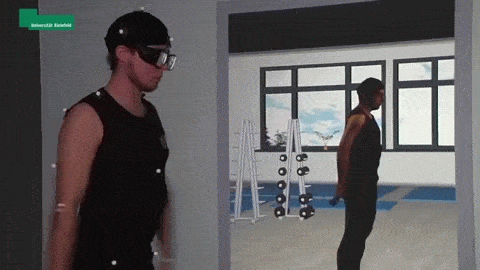
What it is: Germany's Bielefeld University has created a virtual "intelligent coaching space" that uses virtual reality to assist with physical rehabilitation and athletic performance. It starts with a 3D scan of the participant's body, which is used to create an avatar. As the user works out with a virtual coach using 3D stereoscopic glasses, infrared cameras capture movement from reflective markers placed on the user's body. Any mistakes, like incorrect form, are depicted on a virtual display; users can also play back video of them performing successful exercises in slow motion. The coaching space's initial planned activities include golf instruction, gymnastics, yoga and tai chi.
Why it's important: Sensors and virtual worlds converge to create an immersive, highly data-driven training experience for athletes and those rehabilitating an injury. We're also seeing the digitization of in-person fitness coaching and dematerialization of one-on-one trainers.
Spotted by Marissa Brassfield
Latest Version of Atlas Robot Opens Doors, Traverses Through Snow
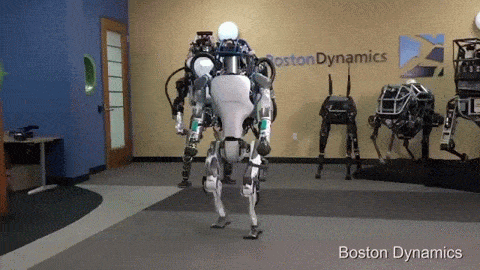
What it is: Boston Dynamics has just released video of its latest Atlas robot exhibiting some remarkable new capabilities. The Google-owned company has slimmed Atlas down from 330 pounds to 180 pounds, and it's lost the wire tether seen on previous models. Atlas can now reliably navigate snowy terrain, stand back up after a fall, and pick up objects amid bullying (you'll have to see the video for context).
Why it's important: We know that robots are continuously becoming more capable at performing repetitive human-level tasks, and Atlas adds a new layer to this with its advanced compensation systems. (Side note: Many of us on the team empathized with the robot while watching the video -- did you?)
Spotted by Cody Rapp
Phones With 7-Day Battery Life
What it is: Intelligent Energy Holdings (the company that brought hydrogen power to London's black cabs) is working with an "emerging smartphone maker" to create a smartphone-sized fuel cell. The battery creates its energy from hydrogen, with water vapor as its sole byproduct. If everything goes to plan, we should see a smartphone battery with a seven-day refresh life in two years.
Why it's important: Smartphones with a week-long battery life are universally beneficial, but this development is especially promising for those who live without power grid access (think parts of Africa and other developing nations).
Spotted by Joseph Campos
Humanlike Robotic Hands
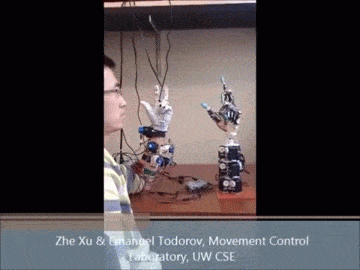
What it is: Engineers from Yale University and the University of Washington have created an impeccably humanlike robotic hand -- right down to its 3D printed artificial bones, laser-cut rubber sheet soft tissue, and super-strong ligaments made from strings. It can hold dental floss, bowls, dollar bills and other everyday tools, all without force feedback.
Why it's important: This anthropomorphic approach to robotic hands could dramatically enhance industrial robots' capabilities. As Singularity Hub points out, a robot with human-level dexterity could tightly pack boxes, handle circuit boards and perform other factory tasks that have historically been difficult to automate.
Spotted by Ryan James Rhoades
Facebook Uses AI to Generate Super-Accurate Population Map
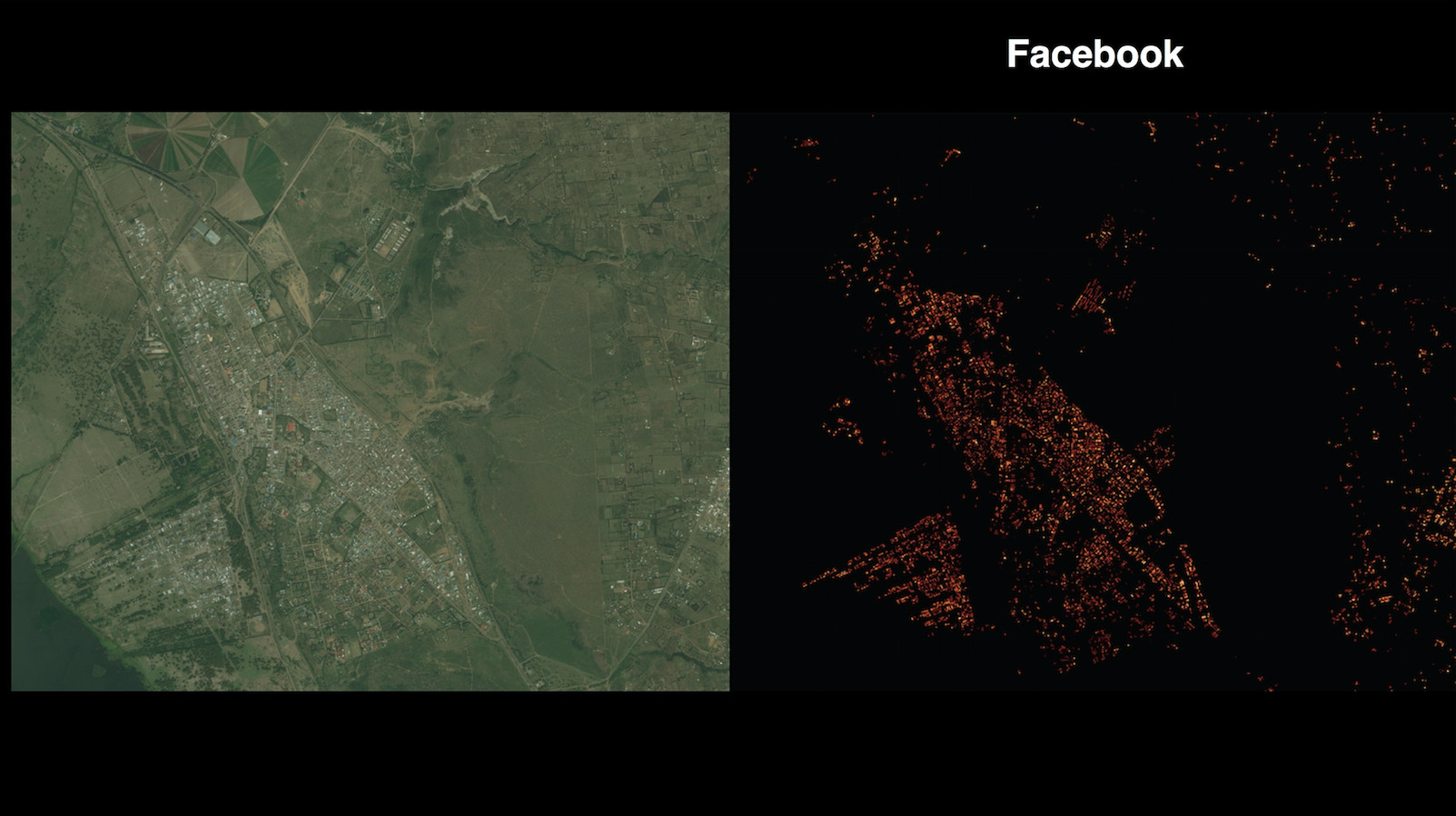
What it is: Facebook's Connectivity Lab is working on getting everyone on the planet online -- and they've recently teamed up with Facebook's data science and AI groups to create a precise population map of every dwelling on the planet. The AI team processed 14.6 billion satellite images from 20 countries, which represents a total of 21.6 million square kilometers. Its algorithm was trained to look for evidence of human settlement.
Why it's important: Current satellite maps (1km resolution) aren't precise enough to pinpoint human settlement -- a crucial piece of information to design technology that connects people outside of cities.
Spotted by Kim Butler
Artificial Skin Made From Office Supplies
What it is: KAUST (King Abdullah University of Science and Technology) researchers have developed a low-cost sensor platform called "paper skin" that can sense humidity, temperature, pressure, touch and acidity. Best of all, it's made from low-cost materials: tape, sticky note paper, aluminum foil and sponges.
Why it's important: The researchers say that the current artificial skin performs just as well as pricier sensor platforms. Future iterations of this "artificial skin" platform could monitor vital signs like movement, heart rate, breathing patterns and blood pressure.
Spotted by Marissa Brassfield
China Builds Massive Waste-to-Energy Plant
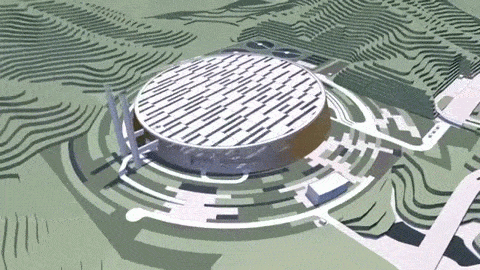
What it is: China is looking to tackle its growing trash problem by creating the world's largest waste-to-energy plant in megacity Shenzhen. The plant will be able to burn 5,000 tons of trash daily, and stretches almost a mile across. It's the largest of 300 waste-to-energy plants that are set to open in the next three years. China also plans to add a visitor center in the Shenzhen plant that educates citizens on the incineration process and the damage waste does to the environment.
Why it's important: The design team stresses that this approach isn't a standalone clean energy solution -- after all, incineration releases pollutants of its own -- but it is a promising, landfill-free approach to deal with waste and simultaneously generate energy as a byproduct. This project will be one for other megacities to watch and possibly model.
Spotted by Marissa Brassfield
Curing Cancer with Immune Engineering

What it is: Genetically engineered T cells, or immune cells, may be the key to solving cancer. The technique involves editing the genetic instructions inside T cells using CRISPR or TALENs methods so that the cells are programmed to seek and destroy harmful cells -- for example, the exact blood cell type that causes leukemia.
Why it's important: Science fiction is rapidly becoming science fact. Researchers are currently working on futuristic T cells that only "turn on" their seek-and-destroy behavior when a specific drug is added to the environment, or T cells that use "dual authentication" methods to identify a target.
Spotted by Peter Diamandis
One-Step Process Turns Carbon Dioxide Into Clean Fuel and Oxygen
What it is: University of Texas at Arlington researchers have created liquid hydrocarbon fuel with a simple, inexpensive conversion of carbon dioxide and water. Brian Dennis, the co-principal investigator of the project, explains the process: "Concentrated light drives the photochemical reaction, which generates high-energy intermediates and heat to drive thermochemical carbon-chain-forming reactions, thus producing hydrocarbons in a single-step process."
Why it's important: Here's a clean energy source that actually improves the environment (the process removes carbon dioxide from the air and creates oxygen as a byproduct). Best of all, as co-principal investigator Frederick MacDonnell explains, "...many of the hydrocarbon products from our reaction are exactly what we use in cars, trucks and planes, so there would be no need to change the current fuel distribution system."
Spotted by Gerry Wawzonek
What is Abundance Insider?
This email is a briefing of the week's most compelling, abundance-enabling tech developments, curated by Marissa Brassfield in preparation for Abundance 360. Read more about A360 below.
Want more conversations like this?
At Abundance 360, Peter's 250-person executive mastermind, we teach the metatrends, implications and unfair advantages for entrepreneurs enabled by breakthroughs like those featured above. The program is highly selective and we're almost full, but we're still looking for a few final CEOs and entrepreneurs who want to change the world. You can apply here.
Know someone who would benefit from getting Abundance Insider? Send them to this link to sign up.
PHD Ventures , 800 Corporate Pointe, Suite 350, Culver City, CA 90230
| | This email has been checked for viruses by Avast antivirus software. |
No comments:
Post a Comment